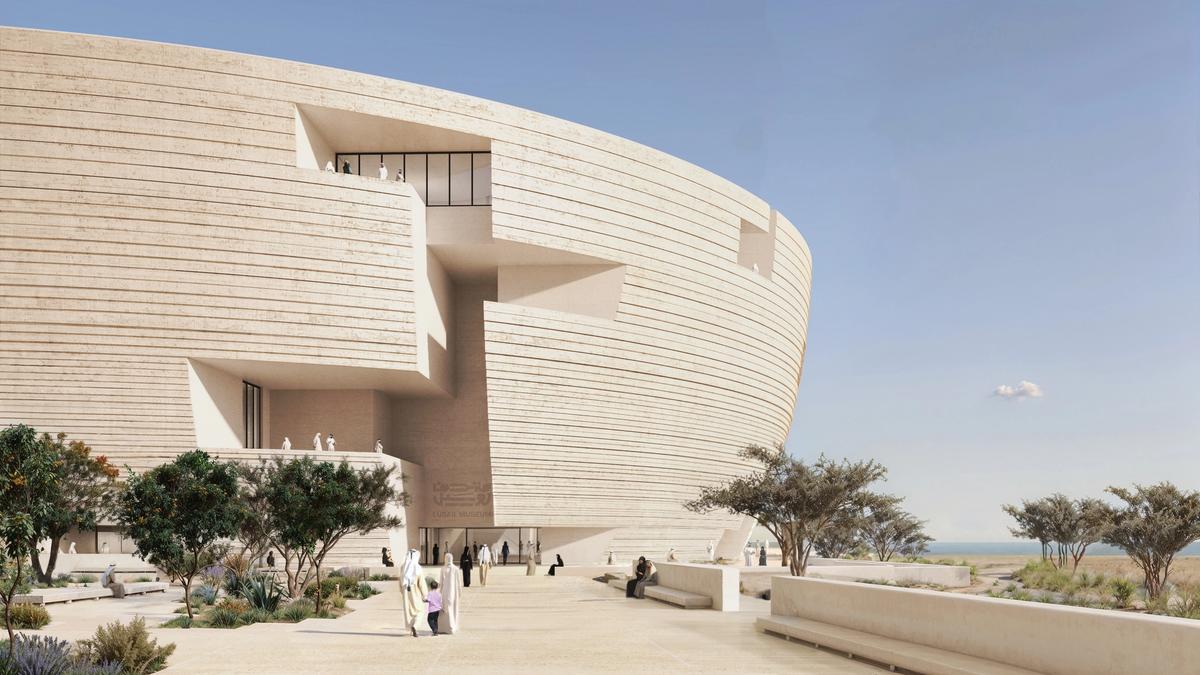Qatar is making its presence felt at Art Basel this week following the announcement of the new Art Basel Qatar fair, due to launch next February in the oil-rich Middle Eastern state. Further details regarding Art Basel Qatar are due to be announced next week, including the fair dates.
Models of the new cultural venues slated for Qatar take centre stage in the Collectors Lounge at Art Basel, including a maquette of the Lusail Museum, designed by Basel architects Herzog & de Meuron, which will house the world’s biggest collection of Orientalist painting and photography. The museum is due to be built on Qatar’s Al Maha Island, although an opening date is yet to be announced. The cultural offensive is accompanied by a culinary offering with specialities such as majboos chicken being served in a Qatar pavilion in the lounge.
Meanwhile Qatar Airways announced a “new global partnership” with Art Basel earlier this month, saying it will “support all of the fair’s prestigious annual exhibitions in Basel, Paris, Hong Kong and Miami, as well as its newly launched edition in Qatar”.
Rare appearance
Sheikha Al-Mayassa bint Hamad bin Khalifa Al Thani, the sister of Qatar’s present emir and driving force behind the state’s long-term cultural ambitions, also made a rare appearance, speaking yesterday on a panel discussion at the Fondation Beyeler in Basel alongside the architect Jacques Herzog and the artist Urs Fischer.
“We felt now is the right time to support the cultural infrastructure that we have invested in with an art fair and also [provide] an opportunity for gallerists to be introduced to the talent we have in the region,” said Sheikha Al-Mayassa. Noah Horowitz, Art Basel chief executive, said at the event that the Qatar fair “will look and feel different” from the other Art Basel fairs.
Sheikha Al-Mayassa also discussed the “final chapter” in the country’s cultural development, which began around 20 years ago. The last stage focuses on an “international and global outreach project [including] the Lusail museum; this is all about the idea of what post-colonialism means and the identity crisis the region is facing because of that, and how can we address conflict using art and culture as a tool to heal and bring people together”.
Asked if she was confident that international visitors would visit the new museums in the face of fierce cultural competition in the region from other countries such as Saudi Arabia, Sheikha Al-Mayassa said: “The more the merrier… Competition is a Western concept. So many Saudi [visitors] I saw this morning congratulated us on [the new fair]. They don’t see us as competition; we complement each other.”


